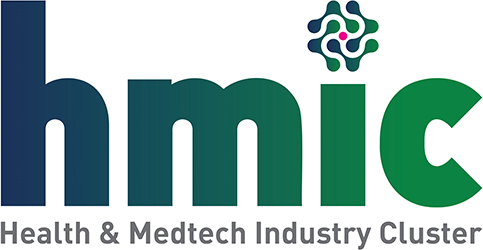Developing an enthusiastic and curious mindset in young engineers is one of the reasons Ihydrate Founder Lisa Winn finds working with university students so rewarding.
As the former Marketing Director for Coca-Cola South Pacific, Lisa oversaw the R&D of many products and headed the company’s local start-up incubator. Her time with the incubator sparked ideas that have led her to her most recent endeavour – Ihydrate.
Lisa’s start-up Ihydrate solves a big problem – the absence of a simple, non-intrusive way to measure hydration. Her unique saliva-based test strip offers a completely new solution that is portable, convenient, affordable, easy to use and delivers reliable results in real time.
But developing the technology and the business takes manpower.
For Lisa, Medical Engineering students and PhD candidates offer the right mix of enthusiasm, technical knowledge and ideas to help her business grow.
“Start-ups are lean! We need to be agile and cost-effective but, at the same time, disruptive. University students are perfect in this environment – they’re hungry for opportunities to contribute, their input is fresh and insightful, and they enjoy casual work. And, they’re generally not constrained in their thinking which is ideal when you’re exploring new technology.
“Students are also eager to continue learning. They’re open to being coached and mentored which is something I enjoy being able to offer them – it’s a two-way street. I work closely with the University of Newcastle to engage students across all aspects of my business which has been a very successful model so far.”
Students from MedTeCCH founding partner, University of Newcastle’s Medical Engineering undergraduate course are a key target for Lisa. She recently employed Angela Domingues and Sam Thomson during their final year studies.
Angela, who is passionate about health and engineering, was interested in a career in medical engineering as it combined her two areas of interest. Work placement has reinforced that she made the right decision.
“At times throughout my degree, I have questioned my interest, ability and future in the field to the extent of considering further post-grad study in other fields. However, work placement allowed me to meet people in the industry, work on an interesting health-related project and ultimately gave me the chance to keep perspective of my interests and skills in a real-world application, rather than being confined to the stress of a university setting.
“The most rewarding part of being involved in this ‘real’ project is working from the start to a completed product and regularly reflecting on the impact it can make on people’s lives once finished.”
Sam became interested in medical engineering during his final year at high school. “I spent a week at a medical device company and decided that a career in the field seemed pretty cool.”
“There are tremendous benefits to work placement: not only does it provide career direction and essential connections to help with finding a job and getting into the industry, it also assists with understanding industry expectations of a graduate engineer.”
Asked about what she sees as the major benefit of work placement, Angela said, “being able to engage in projects and work in industry that extend beyond what is learnt and done at university.”
“As well as this, being able to develop skills and expand network connections with those in industry is extremely beneficial, especially for those (like me) who are close to graduating. Work placement has given me motivation to continue in the medical engineering field and has showed me another perspective of the engineering process that I hadn’t been previously exposed to,” Angela continued.
Associate Professor James Welsh convenes the Medical Engineering degree at the University of Newcastle. Dr Welsh said the University is continually looking for industry partners to host students for the compulsory work placement component of their undergraduate programs.
”Work placement benefits students immensely. It gives them real-world, practical experience in the fields they plan to pursue as careers and contributes to them becoming more employable. And for industry partners it facilitates access to a pool of potential talent,” Dr Welsh said.
Making connections between industry and the University is a role the Hunter Central Coast’s MedTech & Pharmaceuticals (MTP) industry cluster, MedTeCCH, can assist with. Established and managed by Regional Development Australia (RDA) Hunter, MedTeCCH comprises a broad range of the region’s MedTech and allied health companies, national industry associations, Health and manufacturing specialists, and education & research organisations.
RDA Hunter is building awareness of the Hunter Central Coast as a strong contributor to medtech competitive capability nationally and helping to grow the medtech workforce.


